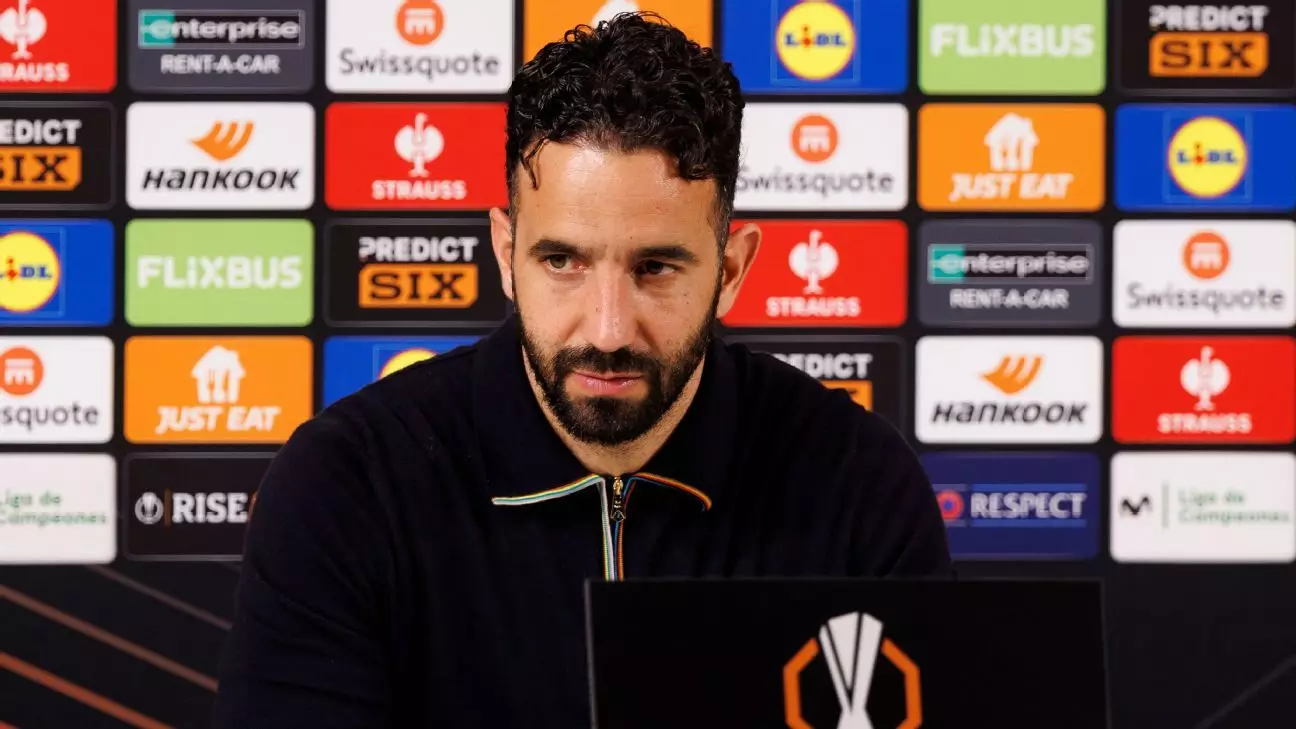Ruben Amorim, the brilliant manager of Manchester United, has shown that his leadership extends far beyond tactical acumen and matchday decisions. In a remarkable display of solidarity, Amorim has opted to personally pay for the families of 30 of his backroom staff to attend the upcoming Europa League final in Bilbao. This courageous act comes in the face of disappointing decisions made by the club’s hierarchy, who have omitted financial support for staff tickets amid ongoing cost-cutting measures. The juxtaposition of Amorim’s compassionate decision against the club’s stringent policies reveals a glaring issue within the upper echelons of management: the stark contrast between corporate decisions and the human aspects of a football club.
Cost-Cutting and its Implications
The financial realities facing Manchester United are clear, with a rumbling talk of layoffs impacting more than 200 jobs this summer. The club’s attempt to balance finances by limiting the availability of tickets for the Europa League final has left many feeling undervalued, especially when contrasted with the ethos portrayed by rival clubs. For example, Paris Saint-Germain is footing the bill for nearly 600 employees to experience the Champions League final, showcasing an understanding of the integral role support staff play in a team’s success. It is baffling that United would choose to ration tickets for those who labor tirelessly behind the scenes, leading to an atmosphere of resentment and disappointment that could undoubtedly affect morale across the organization.
An Unyielding Spirit of Unity
Yet, Amorim’s reaction to the club’s lack of support is a shining beacon amidst the gloom. By taking it upon himself to cover the costs for his staff to bring their loved ones to the monumental match against Tottenham, he showcases an admirable level of egalitarianism. His decision illustrates the age-old adage that morale can often be boosted through the simplest of gestures. In an era where football can feel increasingly commodified and transactional, Amorim’s action speaks volumes about the importance of camaraderie and support among colleagues. This message resonates not only with the backroom staff but also among the players, fostering an atmosphere of unity.
Redefining Club Culture
Football, at its core, is about passion, community, and shared experiences. Amorim’s generosity serves as a poignant reminder that, within the confines of corporate strategy, the heart of the sport should not be lost. As Manchester United battles on the pitch for a shot at European glory, it’s imperative for the club to recognize the importance of cultivating a supportive culture at every level. Without it, they risk alienating a vital backbone of the organization that can contribute to both performance and overall morale. In a world where finances often overshadow values, Amorim’s actions offer a refreshing alternative, emphasizing that true leadership is about stepping up for your team, fostering loyalty, and valuing every individual who contributes to the journey, regardless of their role.

